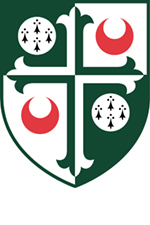Girton College
By some unfortunate accident, the Universities have hitherto excluded women from education, examns. & attestation. We propose to remedy this deficiency’" Emily Davies to Henry Tomkinson, 6 January 1869 [archive reference: GCPP Davies 15/1/1/7]

Founded in 1869, Girton College was the first residential establishment in Britain to provide full time study at degree level for women. The idea for a women’s college emerged from the mid-nineteenth-century national movement seeking improvements in the rights of women and was closely linked with the pursuit of reform in schools and university-level education. However, although many people were involved in the campaign, it was Emily Davies’ energy, determination and vigour which was instrumental in the foundation of the College. Other key figures, who are commemorated in the College coat of arms, were Barbara Leigh Smith Bodichon, Henrietta Lady Stanley of Alderley and Henry Tomkinson.
The Girton College Archive and Special Collections encapsulate the College’s history – from its foundation in 1869, through the admission of women to the University of Cambridge in 1948, the subsequent admission of men to the College in the 1970s, and on to the forward-looking and vibrant Girton of today.
In the early days Girton had many eminent supporters - men and women drawn from all sectors of society. They included artists and writers, artists, politicians, academics, and social reformers. Many donated books and personal papers to the College to help establish its library collections and to preserve its history. This tradition of support and donation has continued to the present day, and, as a result, Girton holds extensive book and archival collections, which often complement and support each other as source material.
The Archive holds and collects the records of the College, personal papers of former and current Fellows, students, and others connected to the College, and material relating to women’ s history. Our collections are an important resource in the history of women’s higher education, and also relate to nineteenth and twentieth-century feminism and women’s social history. The Special Collections complement the material in Girton's Archive in providing insights to the lives and scholarship of their previous owners, in addition to their intrinsic value as scholarly texts. These include Mary Somerville’s collection of mathematical books and Helen Blackburn’s library on the struggle for women’s labour and social rights, and for women’s suffrage, as well as many others.
All our collections are housed in the Duke Building, a purpose-built extension to the College Library in which there is a dedicated reading room for researchers. For information about our collections, and to contact us, please visit the Girton College Archive and Special Collection webpages .

